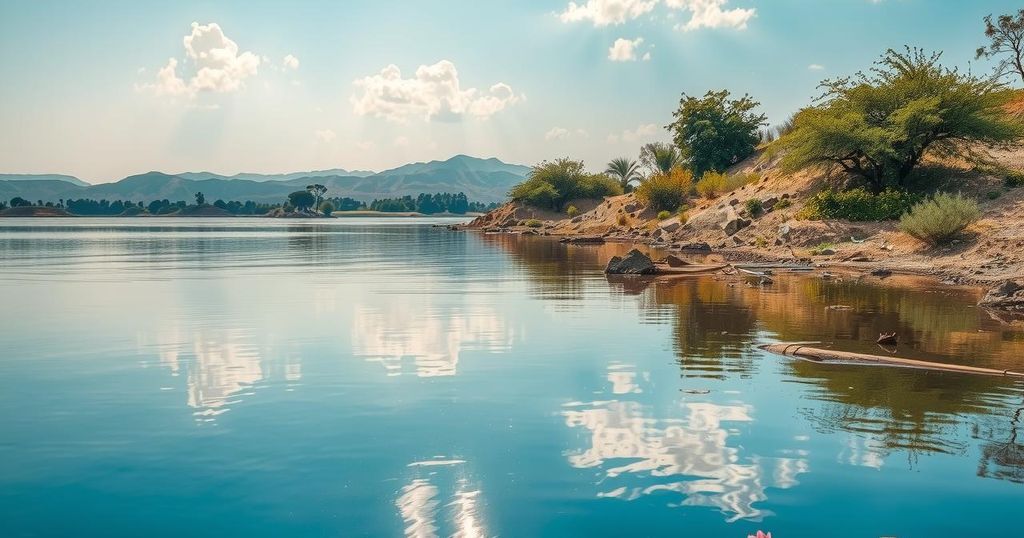The Lake Chad region faces a humanitarian crisis driven by climate change and conflict. Rising temperatures and erratic rainfall exacerbate vulnerabilities, undermining traditional livelihoods. An assessment identified four climate-fragility risks: livelihood insecurity, increased vulnerability from conflict, rising resource conflicts, and recruitment into armed groups. Effective responses must incorporate these climate risks into stabilization efforts.
The Lake Chad region is grappling with a severe humanitarian crisis exacerbated by climate change and ongoing conflict. The interplay of these factors has intensified existing political, environmental, and security challenges, thereby placing additional stress on local communities. Rising temperatures and erratic rainfall patterns further threaten livelihoods, complicating the traditional coping mechanisms employed by affected populations. The conflict between armed groups and state forces exacerbates these vulnerabilities, leading to an overall decline in security and stability in the region.
To address these issues, a thorough assessment of the climate-security nexus in Lake Chad was conducted, focusing on providing actionable insights for stakeholders in the region. This analysis was rooted in a participatory conflict assessment involving 229 deep interviews conducted by a local research team across Cameroon, Chad, Niger, and Nigeria. The study aims to reinforce the evidence base for understanding how climate change intertwines with existing security risks, ultimately shaping a framework for effective responses to these challenges.
The investigation identifies four significant climate-fragility risks: (i) ecological changes that disrupt livelihoods; (ii) increasing vulnerability as conflict strains community coping capacities; (iii) heightened resource conflicts stemming from scarcity; and (iv) livelihood insecurity that drives recruitment into armed groups. It is posited that stabilizing efforts necessitate a comprehensive approach that incorporates the climate risks impacting the Lake Chad area, ensuring they do not overlook the environmental dimensions that contribute to instability.
The Lake Chad basin is characterized by a multitude of challenges, including persistent conflict, climate change, and socioeconomic instability. These factors converge to create a complex humanitarian situation where traditional ways of life are increasingly untenable. Climate change, particularly, presents profound threats to the ecosystems that local communities depend upon for sustenance. Understanding the interactions between climate and security is crucial for formulating effective policies and interventions in the region.
In conclusion, the Lake Chad region’s stability is deeply affected by the intricate relationship between climate change and security dynamics. As highlighted, without addressing the climate-related risks, efforts to enhance stability may prove futile. The four identified climate-fragility risks delineate the need for an integrated approach that considers ecological, social, and security issues, ultimately advocating for a coordinated response that can mitigate both climate and conflict risks simultaneously.
Original Source: reliefweb.int






